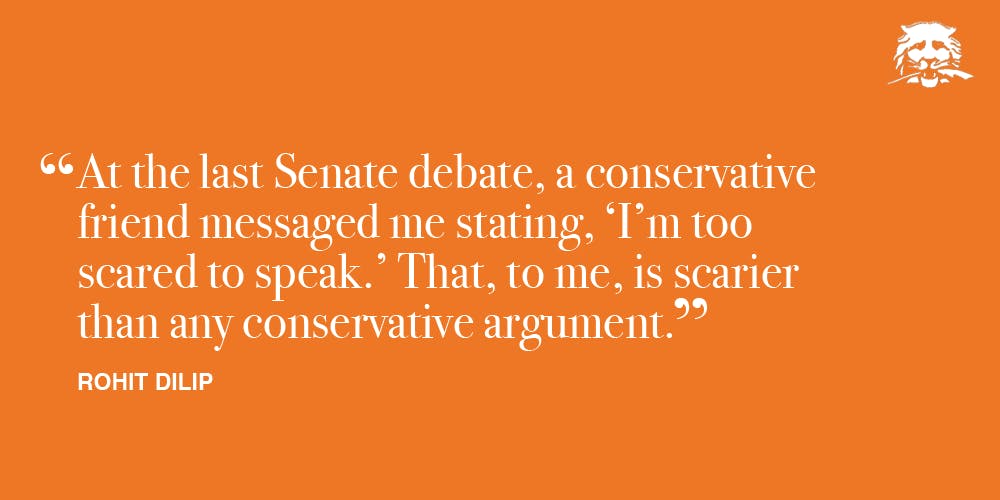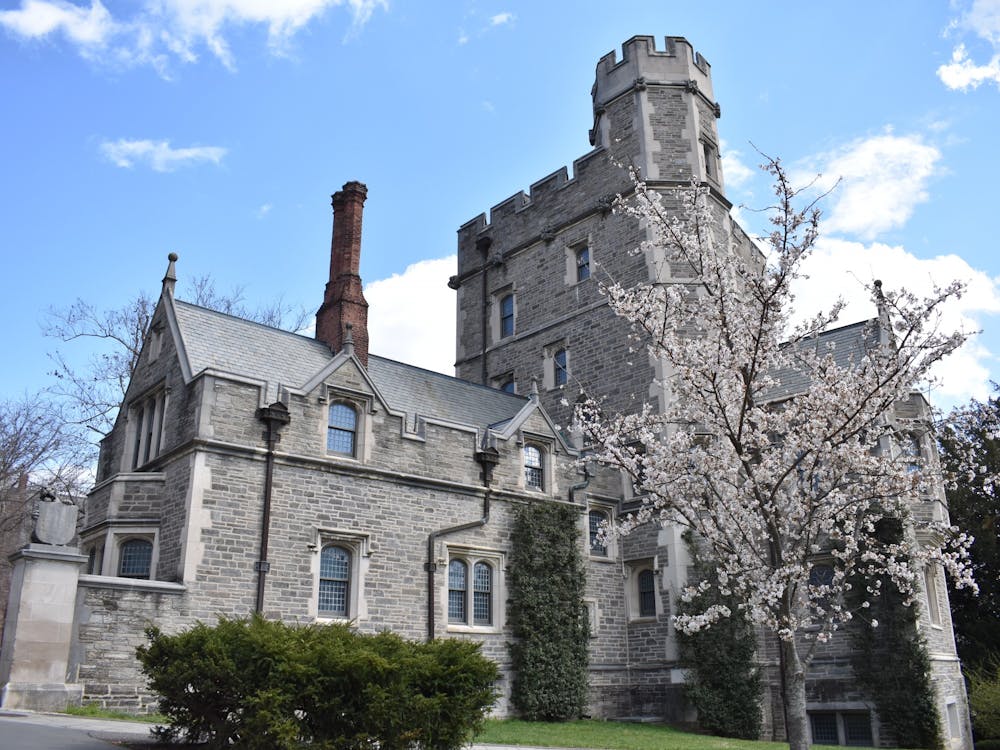Every time I attend a senate debate hosted by the American Whig-Cliosophic Society, I’ll sit on the side opposite the one I agree with. Senate debate tradition calls on attendees to pound their fists for arguments they like or hiss at comments they disapprove of. It’s a rare opportunity, in an ideologically polarized environment, to force myself into others’ shoes and question my own opinions, without fear of backlash or judgment.
Recently, however, I’ve sat in the center, away from either affiliation. This isn’t due to my own uncertainty; rather, it’s because I fear the inevitable outcome. Many senate debates in the past few months have ended similarly — with Whig members collectively hissing at Clio speakers until Clio speakers are effectively censored. Then, collectively, we liberals can feel content in knowing that the evil forces of conservatism have been beaten back another day.
The senate debates are a microcosm of a larger issue on campus — silenced conservatism. College campuses tend to be predominantly liberal, and the University is no exception. Increasingly, liberals on campus resort less to reasoned argumentation and more to rhetoric and emotional outrage to push back against ideas we dislike. By relying on groupthink to shut down conservatism, we liberals lose the opportunity to explore the nuances and contours of conservative arguments. Likewise, by silencing conservatism, we fail to learn how to best respond and engage with conservative arguments on an intellectual level.
Shouting down Clio speakers may be satisfying. But if the goal of intellectual exchange is pedagogy, and if we value the diversity of political viewpoints we encounter, intimidating the other side of the aisle isn’t a victory. Similarly, anyone who leaves a discussion feeling bullied or attacked is unlikely to change their mind or be open to liberal ideas.
Further, racist and sexist conservatives certainly exist. But this typically isn’t the brand of conservatism that one encounters at the University. There’s an important distinction between denouncing explicit racism and sexism and having an open discussion with someone when you find their views problematic. The latter reflects legitimate political thought and allows conservatives to challenge liberal viewpoints. Without considering conservative ideas, liberal students can never learn to properly defend their own ideas or engage with others’ beliefs. This becomes particularly salient when we leave the University, and liberals no longer necessarily have the advantage of numbers. From a purely selfish perspective, it’s important to engage with opposing viewpoints and learn how to effectively argue against them.
Some may ask, where do we draw the line? Are we to provide platforms to neo-Nazis and the alt-right? To me, though, this response draws a false equivalency. The vast majority of political ideologies on campus are not extremist. Consequently, there aren’t neo-Nazis speaking in our senate debates, but there are traditional conservatives that I legitimately disagree with. Nonetheless, intellectual disagreement doesn’t justify stifling an ideological opponent’s speech.
In the past, I’ve been all too guilty of contributing to the silencing of conservatism. These actions come at a cost. To push back against conservatism through censoring conservative thought chills further debate and deprives liberals of the opportunity to thoroughly challenge conservative arguments. The objective of political discourse should not be satisfaction over having “beaten” our opponents; rather, the goal should be to listen and to express one another’s viewpoints in a respectful and productive context. At the last senate debate, a conservative friend messaged me, “I’m too scared to speak.” That, to me, is scarier than any conservative argument.
Rohit Dilip is a junior concentrator in physics from Fremont, Calif. He can be reached at rdilip@princeton.edu.








